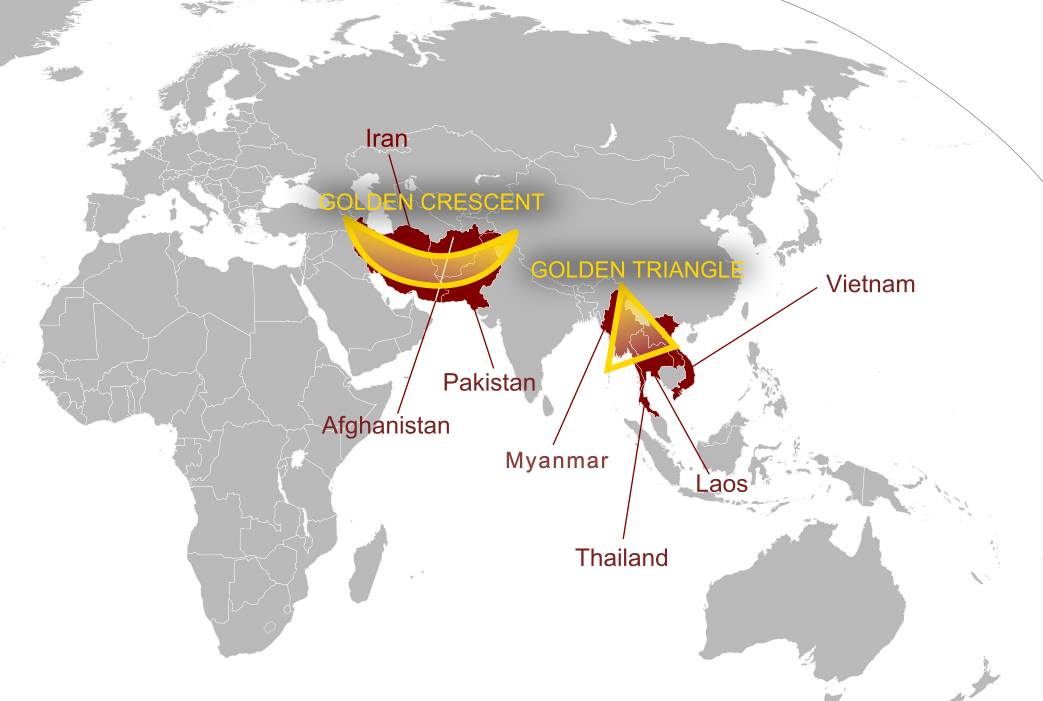-
27 Jul 2022
GS Paper 3
Internal Security
Day 17: “India is one of the major hubs of illicit drug trade.” Discuss the statement in the light of drug abuse problems in India especially in the border areas. (150 Words)
- Introduce with the current situation of drug menace in India.
- Discuss the reasons behind the drug abuse problem.
- Suggest solutions to tackle the drug abuse problem.
- Conclude by suggesting the way out.
Answer
According to the report, “Magnitude of Substance Use in India” submitted by AIIMS, around 5 crore Indians reported to have used cannabis and opioids in 2018. It has been estimated that there are about 8.5 lakh people who inject drugs. Of the total cases estimated by the report, more than half of them are contributed by states like Punjab, Assam, Delhi, Haryana, Manipur, Mizoram, Sikkim and Uttar Pradesh. About 60 lakh people are estimated to need help for their opioid use problems.
India and Illicit Drug Trade
- Major Hub of Illicit Drug Trade: According to a report by the United Nation Office on Drugs and Crime (UNODC), India is one of the major hubs of illicit drug trade ranging from age-old cannabis to newer prescription drugs like tramadol, and designer drugs like methamphetamine.
- Drug Trafficking Routes: India is in the middle of two major illicit opium production regions in the world, the Golden Crescent (Iran-Afghanistan-Pakistan) in the west and the Golden Triangle (South-East Asia) in the east.
- Golden Triangle: It represents the region coinciding with the rural mountains of Myanmar, Laos, and Thailand. It is Southeast Asia’s main opium-producing region and one of the oldest narcotics supply routes to Europe and North America.
- Golden Crescent: This region of South Asia is a principal global site for opium production and distribution. It comprises Afghanistan, Iran, and Pakistan.
- Easy Borders: The borders are porous and difficult to control in the lower Mekong region so cross-border movements and drug trafficking are rampant in the region.
- Evolving Ways of Trafficking: The methods of containerised trafficking, couriers and body-packing have reduced are some ways of drug movement in India.
- Limited Control: There is limited government control in the Golden Triangle and trafficking continues at high volumes.
- Unaffected Supply: The supply of precursor chemicals is easier because major organised crime groups source chemicals through direct diversion from industry and not diversion from illicit overseas trade channels.
Way Forward
- Additional efforts would be required at the national, regional, and international level to carefully analyse methods and trends to understand changes to drug markets in the wake of the pandemic.
- There is a need to understand the change in the strategy of drug trafficking organisations as a result of the Covid-19 measures.
- Therefore, use of maritime trafficking routes from Myanmar along the Andaman Sea, some of which cross Indian territorial waters must be strategically observed by India to curb the trafficking.
- Moreover, methods or procedures to deal with illicit drug supply, their usage must be institutionalised in order to ensure that fight against this menace is not compromised in face of a pandemic or any other crisis.
- Addiction should not be seen as a character flaw, but as an ailment that any other person could be struggling with. Therefore, the stigma associated with drug taking needs to be reduced.
Drug addiction and trafficking can harm the national security and integrity of a nation and degrade the human resources of a country. With the advent of coronavirus, the intensity of the illicit drug trade in India is expected to rise. The government needs to implement the existing laws strictly to prevent drug trafficking and its resultant drug abuse.






